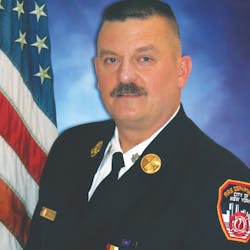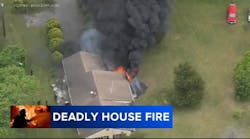The concept of risk is a constant topic of discussion in the fire service. Almost all of the work that we do involves some degree of risk. Certainly, operating inside of a burning building involves risk, but so does working at the scene of a highway accident and investigating a reported natural gas leak. In fact, risk is so insidious that it even exists during the response to an alarm that proves to be unfounded or nonexistent.
Risk exists in many areas of society and has been studied and discussed in many forms. To be clear, I’m not talking about the risk management process or the risk benefit analysis. What I’m talking about is the simple, yet rapid, recognition of risk by firefighters who perform the numerous emergency scene tactics every day.
The perception of risk
Two definitions of risk are: exposure to the chance injury or loss; and a combination of the likelihood and consequences of hazardous events.
The fire service created its own, more specific definition of the risk vs. reward concept, and although there are several variations, it sounds something like this:
“We will risk our life a lot to save a life. We will risk our life a little to save property. We won’t risk our life for something that already is lost.”
Now come the serious questions.
We say that we will risk our life “a lot” to save a life. Sounds good, but how do we know that there’s a life to be saved? How do we know whether a burning building is occupied? Answer: We don’t.
Yes, someone on scene might say that somebody is trapped or still inside, or the dispatcher might get that information from a caller and relay that to us on scene. Do those two situations confirm a person needs to be rescued? Are we basing our decision to risk our life on the word of a bystander, escaped occupant or the dispatcher? I hope not.
Is risking your life “a lot” the same for every firefighter? Aren’t there firefighters who we all know who go a little further, expose themselves to a little more danger, or risk, than some other firefighters?
So, isn’t the perception of risk really a variable?
Have you heard the saying, “There is no such thing as reality, there is only perception”? Some firefighters, based on their training and, more importantly, their experience, engage in dangerous tactics or operations with the perception that they aren’t risking “a lot,” while the firefighter who is crawling directly behind that person is thinking that this is the most dangerous and risky operation that he or she ever has been in. So, we can label the risks that we take as a lot or a little, but the true definition of those words is different for each of us.
Changing conditions
Another variable that involves risk is the fact that it’s a fluctuating condition. When we decide to initiate a dangerous rescue operation, based on our evaluation of on-scene conditions, those conditions might change. If the conditions are severe and we attempt to rescue a person, a life, all is well. However, what happens when we simply initiate an interior fire attack with no reports of lives in danger and conditions worsen? Do we discontinue the attack? Do we call for a second hoseline to assist us? What would you do? What would I do?
The answer is that these risk vs. reward definitions are blurry at best. We must have a better measuring stick for the vital work that we do. Further, I haven’t really mentioned the most important people in this equation: the victim, the trapped mother, the senior citizen. Their survival might hinge on our perception of risk.
Based on evaluation
A more practical concept for us to use might be for each of us to evaluate the emergency scene conditions and information that we either know, can see or were informed of and to make our tactical and operational decisions based on them. Additionally, decisions on where and when to search should be based on whether the area is searchable, not on whether there is or isn’t a report of a victim who needs to be rescued.
John J. Salka Jr. will present “Five Alarm Leadership” at Firehouse Expo. To register, visit fireouseexpo.com.






